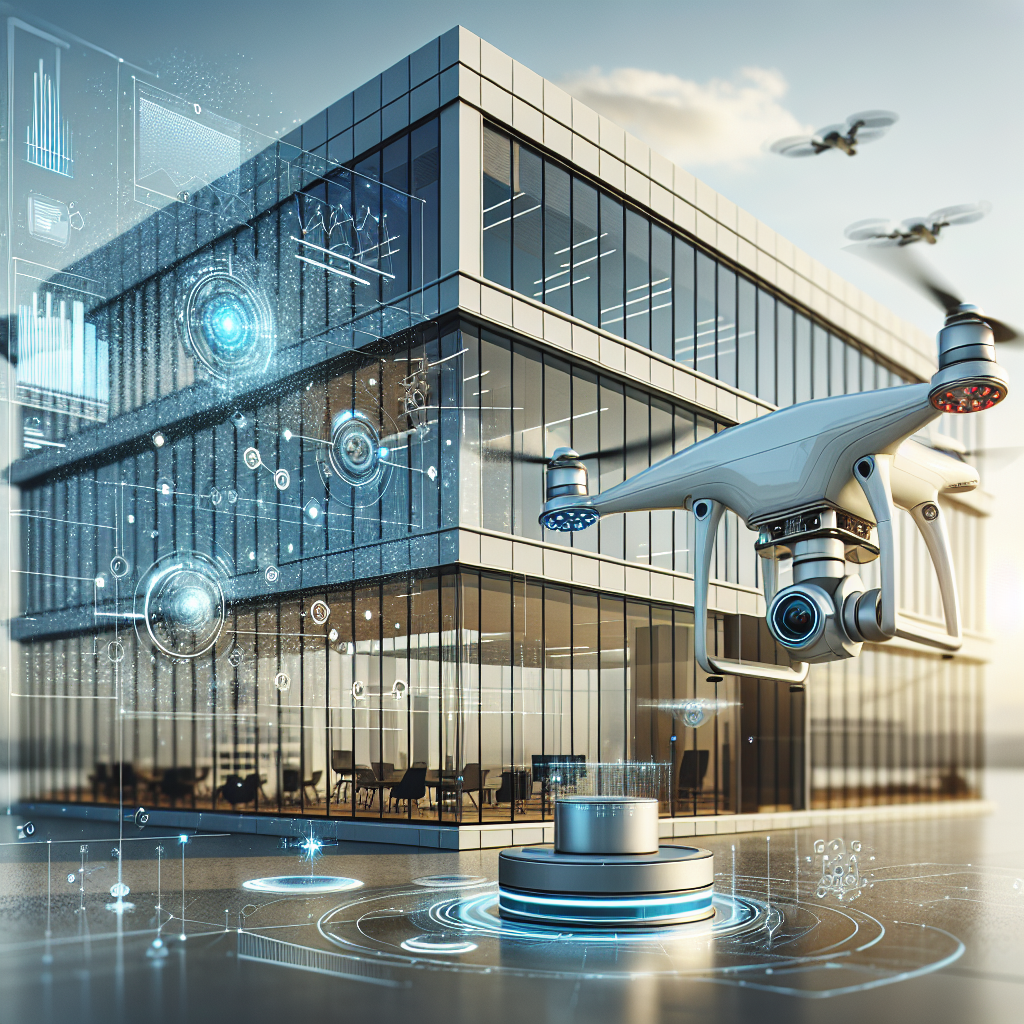In today’s fast-paced world, technology plays a crucial role in transforming various industries and sectors. One such area where technology, specifically artificial intelligence (AI), is making a significant impact is in building performance monitoring. Real-time building performance monitoring using AI is revolutionizing the way building owners and managers track and optimize energy usage, improve occupant comfort, and reduce operational costs.
AI-powered building performance monitoring systems leverage data collected from various sensors and devices installed throughout a building to provide real-time insights into its operations. This data is then analyzed using sophisticated algorithms to identify patterns, anomalies, and opportunities for optimization. By continuously monitoring and analyzing building performance data, AI systems can help identify potential issues before they escalate, optimize energy usage based on occupancy patterns, and improve overall building efficiency.
There are several key benefits of leveraging AI for real-time building performance monitoring:
1. Energy Efficiency: One of the primary benefits of using AI for building performance monitoring is the ability to optimize energy usage. AI systems can analyze data from sensors and devices to identify opportunities for energy savings, such as adjusting heating and cooling systems based on occupancy patterns or optimizing lighting schedules. By continuously monitoring energy usage and identifying areas for improvement, AI systems can help building owners reduce their energy costs and carbon footprint.
2. Predictive Maintenance: AI systems can also help predict and prevent equipment failures by analyzing data from sensors and devices to identify potential issues before they occur. By monitoring equipment performance in real-time, AI systems can detect anomalies and alert maintenance teams to take proactive action, reducing downtime and costly repairs.
3. Occupant Comfort: AI-powered building performance monitoring systems can also improve occupant comfort by adjusting temperature, lighting, and ventilation systems based on occupancy patterns and preferences. By continuously monitoring and analyzing data, AI systems can create personalized comfort profiles for each occupant, ensuring a comfortable and productive work environment.
4. Cost Savings: By optimizing energy usage, reducing maintenance costs, and improving occupant comfort, AI-powered building performance monitoring systems can help building owners realize significant cost savings in the long run. These cost savings can be reinvested into other areas of the building or used to improve overall building performance.
5. Sustainability: By optimizing energy usage and reducing carbon emissions, AI-powered building performance monitoring systems can help buildings become more sustainable and environmentally friendly. By continuously monitoring and optimizing building operations, AI systems can help reduce the environmental impact of buildings and contribute to a more sustainable future.
In addition to these benefits, AI-powered building performance monitoring systems can also provide valuable insights and recommendations for building owners and managers to make informed decisions about building operations and maintenance. By analyzing data in real-time and providing actionable recommendations, AI systems can help building owners optimize building performance and achieve their sustainability goals.
FAQs:
1. How does AI-powered building performance monitoring work?
AI-powered building performance monitoring systems work by collecting data from sensors and devices installed throughout a building, such as temperature sensors, occupancy sensors, and energy meters. This data is then analyzed using AI algorithms to identify patterns, anomalies, and opportunities for optimization. By continuously monitoring and analyzing building performance data, AI systems can provide real-time insights into building operations and help optimize energy usage, improve occupant comfort, and reduce operational costs.
2. What types of data can AI-powered building performance monitoring systems analyze?
AI-powered building performance monitoring systems can analyze a wide range of data, including energy usage, temperature, humidity, occupancy patterns, and equipment performance. By collecting and analyzing this data in real-time, AI systems can provide valuable insights into building operations and help identify areas for improvement.
3. How can AI-powered building performance monitoring systems improve energy efficiency?
AI-powered building performance monitoring systems can improve energy efficiency by analyzing data from sensors and devices to identify opportunities for energy savings. By adjusting heating and cooling systems based on occupancy patterns, optimizing lighting schedules, and identifying energy-intensive equipment, AI systems can help building owners reduce their energy costs and carbon footprint.
4. How can AI-powered building performance monitoring systems improve occupant comfort?
AI-powered building performance monitoring systems can improve occupant comfort by adjusting temperature, lighting, and ventilation systems based on occupancy patterns and preferences. By creating personalized comfort profiles for each occupant and continuously monitoring and analyzing data, AI systems can ensure a comfortable and productive work environment for building occupants.
5. What are the key benefits of leveraging AI for real-time building performance monitoring?
The key benefits of leveraging AI for real-time building performance monitoring include energy efficiency, predictive maintenance, occupant comfort, cost savings, and sustainability. By continuously monitoring and analyzing building performance data, AI systems can help building owners optimize energy usage, improve occupant comfort, reduce maintenance costs, and achieve their sustainability goals.
In conclusion, leveraging AI for real-time building performance monitoring is transforming the way buildings are managed and operated. By continuously monitoring and analyzing building performance data, AI-powered systems can provide valuable insights and recommendations for building owners and managers to optimize energy usage, improve occupant comfort, and reduce operational costs. With the numerous benefits that AI-powered building performance monitoring systems offer, it is clear that AI is set to revolutionize the way buildings are managed and operated in the future.

